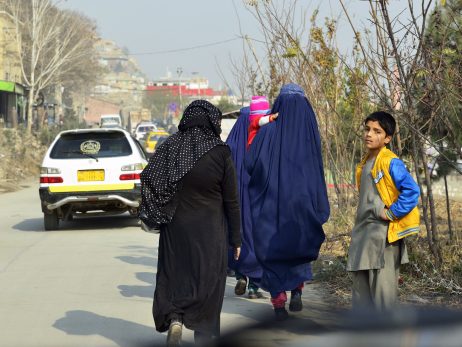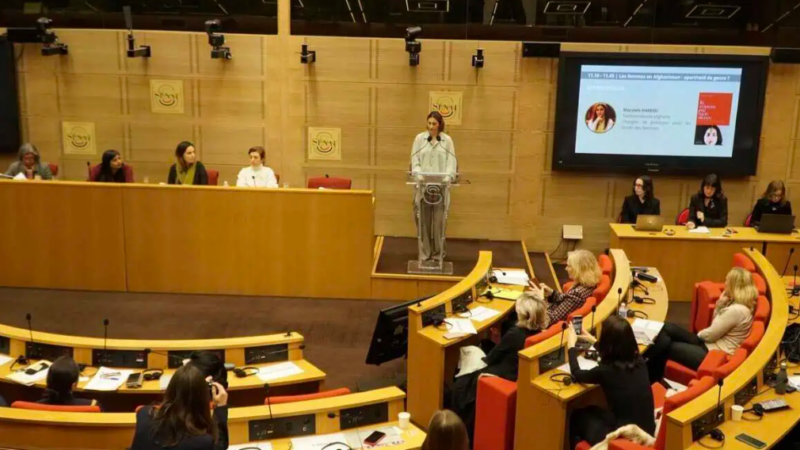‘Gender Apartheid’ Myths and Reality in Taliban-era Afghanistan

Can U.N. efforts ever work to reverse the policies of the Taliban?
The dire state of girls and women in Afghanistan under the Taliban, a tragedy that has featured frequently in international media reports in the last two years, came up for discussion in the United Nations Security Council (UNSC) on September 27. The UNSC convened for an open briefing, followed by consultations focusing on the severe restrictions imposed on the rights of women and girls in the country. It concluded with 11 countries referring to the treatment of Afghan women as gender-based violence and calling for recognition of a gender apartheid under international law.
However, the discussions were also marked by a clear division among the international community and regional countries, which in a way has facilitated the Taliban’s policies.
The systematic discrimination against girls and women, including their physical separation, began as soon as the Taliban forcefully occupied the seat of power, Kabul, in August 2021. Since then, it has grown on a sustained basis, with new restrictions specifically barring women from education, avenues of employment, and even access to public space. The International Labor Organization said in March 2023, that the employment of women has reduced by 25 percent in Afghanistan, compared to mid-2021. UNESCO’s statistics reveal approximately 80 percent of eligible school-age girls, estimated to be about 2.5 million, have been denied access to education. The educational crisis coexists with a looming mental health crisis and has started pushing girls and women along suicidal paths.
This has found repeated mentions in the U.N.’s statements regarding the Taliban regime. In December 2022, senior U.N. agency officials and civil society organization heads urged the Taliban regime to reverse their ban on women working for NGOs that provide aid relief. In January 2023, the U.N. deputy chief and head of U.N. Women conveyed a direct message to the Taliban leadership calling on them to end recent policies toward women and girls that have confined them in their own homes and violated their basic human rights. Further, in April 2023, the U.N. Security Council condemned the Islamic Emirate’s decision to ban women nationals from working for the United Nations, calling for Taliban leaders to “swiftly reverse” their decision.
Little has changed since the messages were delivered and the UNSC resolution was passed.
Given this record, it seems highly unlikely that the U.N. will be able to compel the Taliban to mend their ways without using “carrot and stick” policies appropriately.
Interestingly, none of the regional countries, barring the UAE, was among the group of 11 nations that spoke of the Taliban’s gender-based violence at the UNSC. In addition, the UAE was the only Muslim country in that group. India reiterated its “dedication to peace, stability and humanitarian support for Afghanistan,” and Pakistan questioned the rationale of allowing an appointee of the deposed civilian government to represent Afghanistan.
The women of Afghanistan are faced with the detachment of the West on one side and concerted attempts by countries like China and Pakistan to propagate a “let the Taliban decide the fate of Afghans” view on the other.
There is a belief among some that the Taliban aim to use their policies as a trade-off to win international recognition and control over Afghanistan’s seat in the United Nations. However, this is a trap that the international community would be better off avoiding. The Taliban believe that women’s rights are granted and protected within the confines of the Islamic law. Such rights, they argue, should be understood within the context of the cultural and religious traditions of the country. Faced with criticisms and repeated references to their degrading policies, the Taliban rather bluntly said, in January 2023, that allowing girls to pursue education isn’t a priority for them. The approach to girls and women has a deep religious (and cultural) root and is unlikely to change even with international recognition.
Domestically, the Taliban’s edicts may also have found some level of resonance among women who remained untouched by the widening access to education and consequent employment during the previous civilian regimes supported by the international community in the last two decades. The Taliban so far have done nothing to disrupt the employment of women in the unorganized sector, and may even have indirectly encouraged women to move into self-employment activities, such as the agricultural sector and petty jobs such as repairing clothes. There are, however, no opportunities for education, learning new skills, or upskilling. This curtailment of options, which ensures a substantial fall in income and the ability to maintain their families, is nothing short of a gender-based apartheid.
The question, however, is if the initiatives at the U.N. will ever work to reverse the policies of the Taliban. Such an outcome is possible, provided the member states act in unison and the U.N. has a clear roadmap to so. Intense international pressure can turn things around for the women and girls in Afghanistan, but not when countries are divided and some are amenable to engage the Taliban, as is, in return for economic opportunities and strategic gains.






